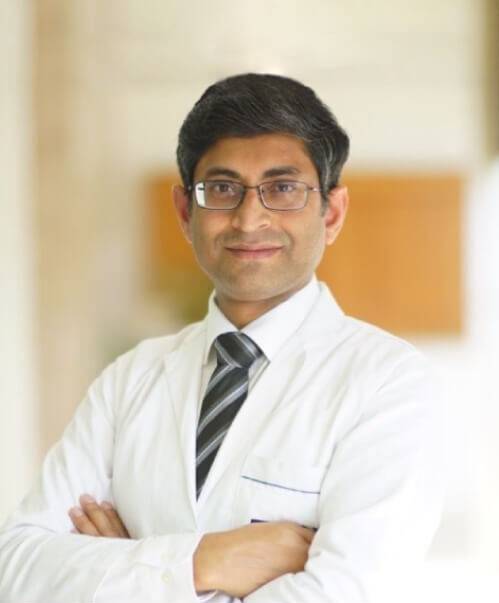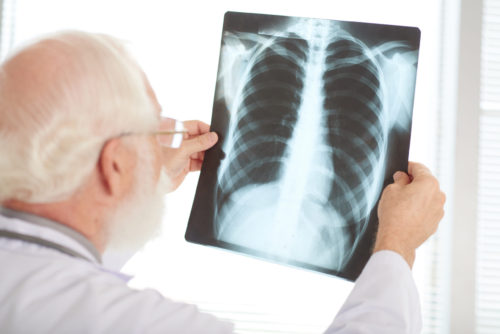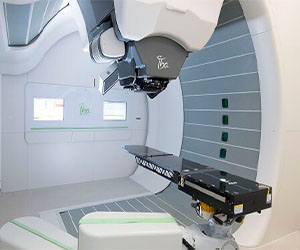
Consultant Radiation and Clinical Oncologist Indraprastha Apollo Hospitals, New Delhi


Best Oncologist in Faridabad
Dr. Dodul Mondal is one of the most prominent and dynamic best clinical oncologist and radiation oncologist in Delhi NCR with international repute who has an experience of working with Proton Beam Therapy at one of the largest university hospitals in the United States. Proton Beam Therapy is considered as the most precise form of radiation currently available in the world. At present, he has been working as Director, Oncology/Radiation Oncology at Max Super Speciality Hospital, Saket, New Delhi.
Dr. Mondal has a vast experience of working at almost all leading high volume cancer institutes of India including Tata Memorial Hospital (TMH), Mumbai; All India Institute of Medical Sciences (AIIMS), New Delhi and Sanjay Gandhi Post Graduate Institute of Medical Sciences (SGPGI), Lucknow.

Our Popular Therapy

Cancer Diagnosis
It is essential to diagnose cancer early and with certainty. Different modalities are used for …

Cancer Screening
Screening provides the benefit of early detection of cancer when it is very small.

Proton Therapy
Proton therapy is an advanced form of radiation therapy designed to kill cancer cells.

Cancer Treatment
Treatments may include surgery, chemotherapy, tomotherapy and radiation therapy.
Fix An Appointment
Contact Info
Need to discuss before treatment ?
Hotline :
Address :
Indraprastha Apollo Hospital Mathura Road, Sarita Vihar, New Delhi-110076, India
Cancer Types And Consultation
Breast Cancer
Breast cancer is cancer that develops from breast tissue. Signs of breast cancer may include breast lumps, changes in breast shape, sunken skin, nipple fluid, inverted nipples or red or scaly spots on the skin. In areas where the disease has spread far, there may be bone pain, swollen lymph nodes, shortness of breath, or yellowing of the skin.
Cervical Cancer
Cervical cancer is cancer caused by the cervix. It is caused by abnormal growth of cells that have the ability to invade or spread to other parts of the body. No symptoms are usually seen in the early stages. Later symptoms may include abnormal vaginal bleeding, pelvic pain, or pain during intercourse. Bleeding after sex may not be serious, but it may also indicate cervical cancer.
Lung Cancer
Lung cancer, also known as lung cancer, is a malignant lung tumor, which is characterized by the uncontrolled growth of cells in lung tissue. By metastasis to surrounding tissues or other parts of the body, this growth can spread beyond the entire lung. Most cancers that start in the lungs (called primary lung cancer) are cancers.
Pancreatic Cancer
Pancreatic cancer occurs when pancreatic cells (the glandular organ located at the back of the stomach) begin to multiply uncontrollably and form clumps. These cancer cells have the ability to invade other parts of the body. Many types of pancreatic cancer are known.
Stomach Cancer
Stomach cancer, also called gastric cancer, is cancer that develops from the stomach wall. Most cases of gastric cancer are gastric cancer, which can be divided into many subtypes, including gastric cancer.
Colorectal Cancer
Colorectal cancer (CRC), also known as bowel cancer, colon cancer or rectal cancer, is cancer that develops from the colon or rectum (part of the large intestine). Signs and symptoms may include blood in the stool, changes in bowel movements, weight loss, and fatigue.
Prostate Cancer
Prostate cancer is prostate cancer. The prostate is a gland in the male reproductive system that surrounds the urethra under the bladder. Most prostate cancers grow slowly, and cancer cells may spread to other parts of the body, especially bones and lymph nodes.
Blood Cancer
Hematopoietic and lymphoid tissue tumors (American English) or hematopoietic and lymphoid malignancies are tumors that affect the blood, bone marrow, lymph, and lymphatic system.
Uterus Cancer
Uterine cancer, also known as uterine cancer, is two types of cancer that develop from uterine tissue. Endometrial cancer is formed by the endometrium, and uterine sarcoma is formed by the muscle or supporting tissues of the uterus.
Esophageal Cancer
Esophageal cancer is cancer caused by the esophagus, which is the food pipe that extends between the throat and stomach. Symptoms usually include difficulty swallowing and weight loss.
Head and Neck Cancer
Head and neck cancer develops from tissues in the mouth, larynx (larynx), salivary glands, nose, sinuses, or facial skin. Symptoms mainly include non-healing ulcers or changes in voice.
Why Choose Us
Dedicated
Professional Services
Cutting Edge Technology
Hassle Free Services
Comprehensive Cancer Care
Cost Effective Services
Patients Testimonial
Frequently Asked Questions
What is Cancer ?
Cancer is the uncontrolled growth of body cells that invade the surrounding normal tissues. If not checked in time, it will spread to distant organs.
What cause Cancer ?
There is no single cause of cancer. Doctors believe that cancer is caused by a combination of many factors. The factors involved may be the individual’s genetic, environmental or physical characteristics.
Can injuries cause Cancer ?
Can injury cause cancer? It is a common myth that injuries can cause cancer. But the truth is that falls, bruises, fractures or other similar injuries have nothing to do with cancer. Sometimes a person may see a health care provider for what was believed to be the cause of injury and cancer at the time.
Can stress cause Cancer ?
No, being stressed does not increase the risk of cancer. Over the past few years, studies have studied many people, but there is no evidence that people with greater stress are more likely to develop cancer. However, how you cope or deal with stress may affect your health.
Is Cancer contagious ?
In the past, people often stayed away from people with cancer. They are worried that they will “infect” the disease. But cancer is not like flu or cold. You cannot get cancer from someone who has cancer. You will not get cancer from people around you or people who have cancer. Don’t be afraid to visit someone with cancer. They need the support of family and friends.
Can Cancer be cured ?
Cure means that the treatment has eradicated cancer and there is no chance that it will return. It is rare that a doctor can ensure that cancer will never return. In most cases it takes time and the longer a person remains cancer-free, the better chance cancer will not return.
Who gets cancer ?
Anyone can get cancer, although the risk increases with age. Your personal risk depends on many factors, such as whether you smoke, lifestyle choices (such as diet and exercise), family history of cancer, and factors in the workplace and environment.
How many people alive today have ever had cancer ?
Today, almost 17 million people alive in the United States have had some type of cancer. Some of these people are cancer-free; others still have it.
How is cancer Treated ?
Surgery, chemotherapy and radiation are the three main cancer treatments. Cancer patients may receive any or all of these treatments. When choosing a treatment plan, the most important factors are usually the type of cancer and the stage (amount) of the cancer.
Is cancer treatment worse than cancer ?
When many people decide whether to receive cancer treatment, this belief can be dangerous for many people. People who believe that treatment is worse than cancer may not have access to life-saving treatments.
Is cancer genetic ?
In fact, cancer is a genetic disease. This is because cancers are caused by mutations or changes in genes that control the way our cells function, causing them to behave abnormally. These mutations can be inherited and account for about 5% to 10% of all cancer cases, but the changes in these genes are likely to occur during a person’s lifetime due to factors other than human genetics.
Get Opinion from the expert for most effective treatment approach
